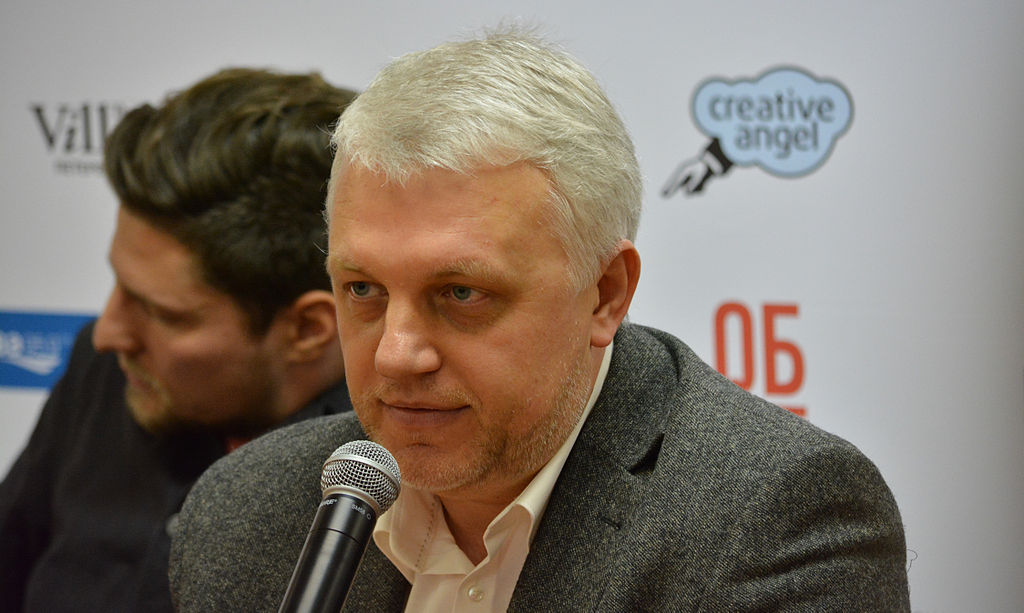“We condemn the murder of the journalist Pavel Sheremet, and ask the Ukrainian authorities to conduct an effective and transparent investigation to bring the perpetrators to justice. This murder underlines the risks faced by journalists covering conflicts and human rights issues in the region,” commented Ane Tusvik Bonde, Regional Manager for Eastern Europe and Caucasus at the Human Rights House Foundation (HRHF).
Index on Censorship’s Mapping Media Freedom project documented 41 attacks on journalists in Ukraine between 1 January and 20 July. It reports that the largest number of incidents – about one-third – occurred in Kyiv.
Tetiana Pechonchyk, correspondent for Mapping Media Freedom and the head of Human Rights Information Center, a partner organisation of the Human Rights House Network, commented: “This murder was a shock for many people in Ukraine, for both those who knew Pavel Sheremet and those who didn’t. The cynicism with which it was executed indicates that it was more than a murder; it was a public execution of a well-known journalist who worked for one of the most influential online media in Ukraine – Ukrainska Pravda.”
“In this sense it sends us back to 2000, when another journalist, co-founder of Ukrainska Pravda Georgii Gongadze, was brutally killed and his decapitated body found in a forest outside Kyiv. The executors of Gongadze’s murder are in prison but the organisers managed to avoid responsibility, as the investigation failed to name and punish them. While such impunity exists, it will provide the fuel for future crimes and violence against journalists,” Pechonchyk continued
In a recent article for Index on Censorship, Pechonchyk details recent attacks on journalists in Ukraine.
In May 2016, the Ukrainian Myrotvorets [“peacemaker”] website posted the names, telephone numbers, and email addresses of 4,500 journalists who have worked in the separatist regions of Donetsk and Lugansk, and branded these journalists “terrorist accomplices.” This vilification of journalists led to many of them receiving threatening letters and phone calls. Reporters Without Borders strongly condemned the publication.
Reporters Without Borders ranked Ukraine 107 out of 180 countries in its latest World Press Freedom Index. Its June 2016 report describes a fragile situation in which journalists are generally able to work freely and engage in investigative reporting, but yet face immense problems.
Sheremet was a well-known journalist. He helped to set up several independent media outlets in Belarus, and was a critic of President Lukashenko and the Belarusian authorities. He was imprisoned in Belarus for three months in 1997. In 1998, he moved to Moscow, working as an investigative journalist before moving to Ukraine in 2011. He worked as a journalist for independent news website Ukrainska Pravda and as presenter at Radio Vesti. He reported on political developments in Ukraine, Russia, and Belarus.
Tatsiana Reviaka, president of the Belarusian Human Rights House, paid tribute to Sheremet: “His human and professional adherence to principle, uncompromising stand, and authority are the reasons why he got put in Belarusian prison, why he chose the difficult path of defending the freedom of speech in Russia, and why he left a bright trace in Ukrainian journalism.”
Sheremet’s reporting earned him the International Press Freedom Award from the Committee to Protect Journalists (CPJ) in 1998.
Pavel Sheremet was one of the speakers at the conference “Action Belarus,” which was organised by Human Rights House Foundation, Norwegian PEN and the Norwegian Helsinki Committee in March 2012 at the Literature House in Oslo to increase the awareness about the human rights situation in Belarus.
Mapping Media Freedom
Index on Censorship’s Mapping Media Freedom project identifies threats, violations and limitations faced by members of the press throughout European Union member states, candidates for entry and neighbouring countries.





